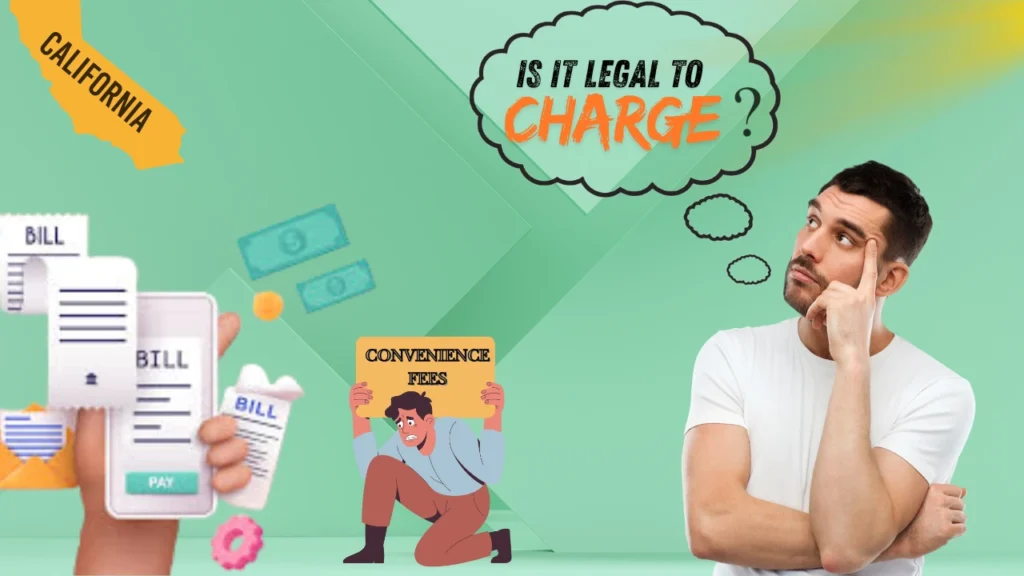Is It Legal to Charge “Convenience Fees” on Utility Payments?.Utility bills like electricity, water, gas, or internet are recurring financial responsibilities most households can’t escape. While paying them should ideally be straightforward, many customers find an extra line item labeled “convenience fee” or “service charge” when making payments online, over the phone, or with a credit card.
This sparks a pressing question: Is it even legal to charge convenience fees on utility payments? And the answer is not black-and-white. Rules vary depending on location, payment method, and governing regulations. Let’s dive deep into the legalities, fairness, and consumer rights associated with these charges.
Is It Legal to Charge “Convenience Fees” on Utility Payments?-Overview
| Article on | Is It Legal to Charge “Convenience Fees” on Utility Payments? |
| Definition | Extra charge for using a non-standard payment method |
| Common Range | $1 – $6 per payment (varies widely) |
| Legality | Depends on state laws, utility policies, and payment networks |
| Consumer Concern | Extra cost on mandatory bills, reduces payment flexibility |
| Regulator Role | Public utility commissions often decide fairness and compliance |
What Exactly Is a Convenience Fee?
A convenience fee is an additional charge imposed when a customer chooses a payment channel outside of the standard or preferred method. For instance, if the utility provider’s main option is mailing a check, but you pay online with a debit card, you might face an extra fee. This charge is designed to cover processing expenses that utilities incur when offering alternate payment routes. However, critics argue it unfairly burdens consumers, particularly since utilities are essential services.

Legal Standpoint on Convenience Fees
The legality of imposing convenience fees differs based on jurisdiction:
- Federal Perspective (U.S.)
There’s no overarching federal law explicitly banning or allowing utility convenience fees. Instead, federal laws such as the Truth in Lending Act (TILA) and Electronic Fund Transfer Act (EFTA) govern fairness in payment practices. - State Oversight
State public utility commissions (PUCs) hold authority in regulating such charges. In some states, utilities cannot pass processing costs directly to consumers; in others, they can, provided they disclose fees upfront. - Card Network Rules
Visa, MasterCard, and other payment networks impose their own stipulations. For example, they often permit convenience fees but restrict surcharges in specific contexts. - Utility-Specific Rules
Some providers absorb transaction costs as part of their service obligation, while others outsource payments to third-party vendors that tack on these fees.
Why Do Utilities Justify These Fees?
Utilities argue that processing online or card payments comes with costs—transaction fees, payment gateway expenses, and administrative overhead. Instead of raising everyone’s rates, they shift the expense to those opting for these “extra” channels.
Pros for Utilities:
- Avoids spreading costs across all customers
- Encourages low-cost payment methods like bank drafts or mailed checks
- Covers third-party vendor expenses
Cons for Consumers:
- Mandatory services feel like they’re penalizing convenience
- Disproportionately impacts lower-income households who rely on flexible payment methods
- Lack of transparency creates distrust
Comparative Glance at Different States
Before we see the table, let’s understand its purpose: it highlights how rules differ across states in the U.S., showing the uneven legal landscape.
| State | Policy Snapshot |
| California | Heavily regulated; utilities often prohibited from charging convenience fees directly |
| Texas | Utilities may pass on fees if disclosed clearly |
| New York | Public Service Commission scrutinizes fees; often capped or rolled into base rates |
| Florida | Third-party vendors allowed to impose fees; customers may opt for free ACH payments |
| Illinois | Mixed approach; depends on utility and payment processor arrangements |
Ethical Dilemma: Fair or Exploitative?
From a consumer advocacy lens, charging convenience fees on essential services borders on inequitable. Unlike discretionary purchases, utilities are unavoidable. Imagine being penalized for choosing a digital payment route in a society pushing for cashless transactions.
Critics argue:
- These charges are regressive, hitting vulnerable populations hardest.
- Utilities, often monopolistic, leave consumers with no alternative.
- Fees contradict the broader shift toward modern, digital-first payment systems.
Convenience Fees vs. Surcharges
It’s important to differentiate between the two, as confusion often arises.
| Factor | Convenience Fee | Surcharge |
| Definition | Charge for using a non-standard payment channel | Charge for using a specific payment method (e.g., credit card) |
| Who Imposes | Utility or its payment processor | Merchant or provider |
| Legality | Varies by jurisdiction; often allowed with rules | Heavily regulated; prohibited in some states |
| Consumer Perception | Annoying but sometimes avoidable | Feels like a penalty for credit card use |
International Perspective
Globally, convenience fees are treated differently.
- India: Regulatory bodies have cracked down on extra charges for utility payments, insisting most fees be absorbed by providers.
- UK: Credit card surcharges were banned in 2018, reducing room for add-on utility charges.
- Australia: Utilities can impose fees, but they must be “reasonable” and transparently disclosed.
Final Thoughts
The legality of convenience fees on utility payments is not universal; it’s a patchwork shaped by state rules, utility practices, and payment network policies. While utilities justify them as cost-recovery mechanisms, many consumers see them as unjust burdens on essential services.
FAQs for Is It Legal to Charge “Convenience Fees” on Utility Payments?
Can my utility provider legally add a $3 fee for online payments?
Yes, if state rules permit and the fee is transparently disclosed.
Are convenience fees the same as late fees?
No, convenience fees apply for chosen payment channels, while late fees punish delayed payments.
